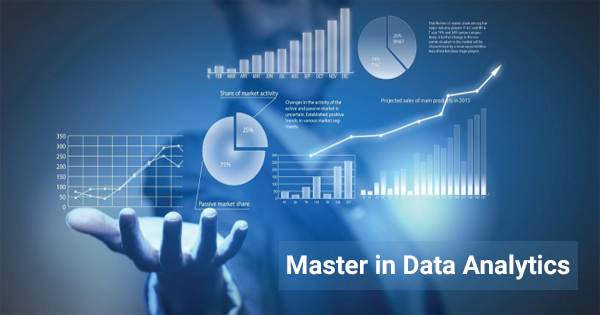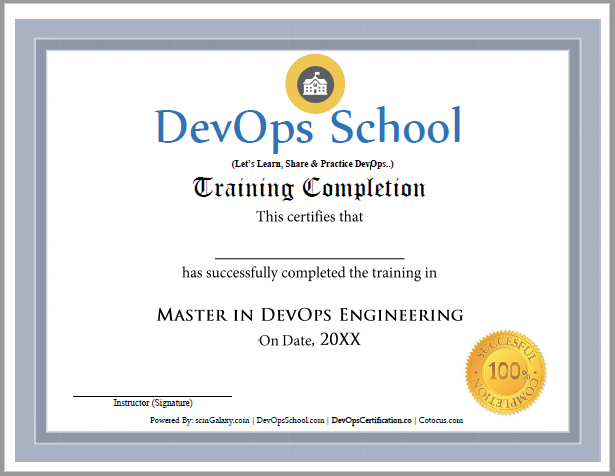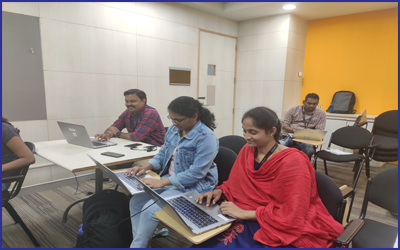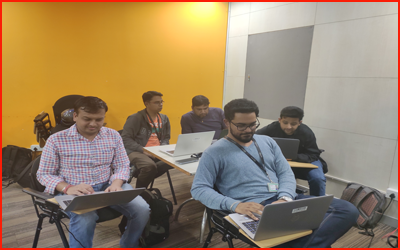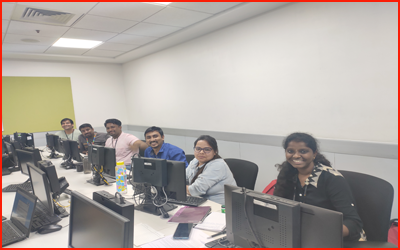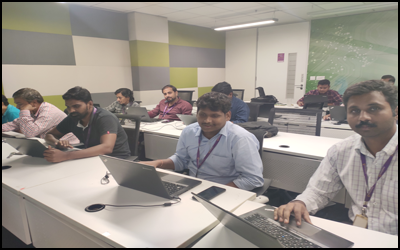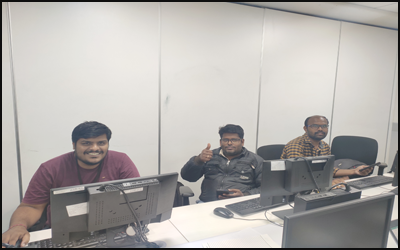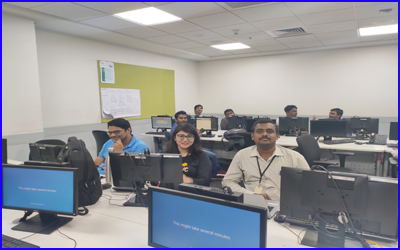8000+
Certified Learners
15+
Years Avg. faculty experience
40+
Happy Clients
4.5/5.0
Average class rating
About Masters in Data Analytics Course
We offer a comprehensive Master’s program in Artificial Intelligence to become a certified Artificial Intelligence Engineer. This Artificial Intelligence certification program gives training on the skills required to become a successful Artificial Intelligence Engineer. Throughout this exclusive AI online course, you'll master Deep Learning, Machine Learning, and the programming languages required to excel in this domain which will be very helpful for you to kick-start your career in Artificial Intelligence.
Masters in Data Analytics Course Overview
This is an Artificial Intelligence training program that is a comprehensive learning approach for mastering the domains of Artificial Intelligence, Data Science, Business Analytics, Business Intelligence, Python coding and Deep Learning. This training program enables you to take on challenging roles in the Artificial Intelligence domain.
The AI courses will make students industry-ready for Artificial Intelligence and Data Science job roles.Upon completion of this AI Engineer Program, you will receive the certificate from our side in the Artificial Intelligence courses on the learning path*. This certificate will testify to your skills as an expert in Artificial Intelligence.
Learning Objectives in Artificial Intelligence training program:-
This Artificial Intelligence Engineer Master’s Program is a blend of Artificial Intelligence, Data Science, Machine Learning, and Deep Learning, enabling you to the real-world implementation of advanced tools and models. The way our course is designed, to give you in-depth knowledge of Artificial Intelligence concepts including the essentials of statistics required for Data Science, Python programming, and Machine Learning. Through these AI courses, you will learn how to use Python libraries like NumPy, SciPy, Scikit, and essential Machine Learning techniques.
Why Become an Artificial Intelligence expert:-
The current and future demand is stumbling. According to the New York Times reports candidate shortage for certified AI Engineers, with fewer than 10,000 qualified people in the world to fill these jobs, and earn an average salary of $172,000 per year in the U.S. (or Rs.17 lakhs to Rs. 25 lakhs in India) for AI Engineers with the required skills.
Skills to be covered in Artificial Intelligence training courses:-
You will be able to accomplish the following by the end of this AI training
- Well Understanding of the meaning, purpose, scope, stages, applications, and effects of Artificial Intelligence.
- Build and design your own intelligent agents, applying them to create practical Artificial Intelligence projects, including games, machine learning models, logic constraint satisfaction problems, knowledge-based systems, probabilistic models, and agent decision-making functions.
- Skills to master the essential concepts of Python programming, including data types, tuples, lists, dicts, basic operators, and also functions.
- How to write your own Python scripts and perform basic hands-on data analysis using Jupyter notebook.
- In-depth understanding of Data Science processes: data wrangling, data exploration, data visualization, hypothesis building, and testing.
- Perform high-level mathematical and technical computing using the NumPy and SciPy packages and data analysis with the Pandas package.
- Master the skill to understand the concepts of supervised and unsupervised learning models, including linear regression, logistic regression, clustering, dimensionality reduction, K-NN and pipeline, recommendation engine, and time series modeling.
- Master your skills on advanced topics in Artificial Intelligence, like convolutional neural networks, recurrent neural networks, training deep networks, and high-level interfaces.
Projects of Artificial Intelligence :-
This Artificial Intelligence program includes real-life projects in different domains. These projects are designed to help you master the key concepts of Artificial Intelligence like supervised and unsupervised learning, reinforcement learning, support vector machines, Deep Learning, neural networks, convolutional neural networks, and recurrent neural networks.
You will go through devoted and exclusive mentored classes in order to create a high-quality industry project, solving a real-world problem. You will have projects that can be showcased to potential employers as a testament to your learning.
- Project 1: Fare Prediction for Uber | Domain: Delivery (Commerce)
- Project 2: Test bench time reduction for Mercedes-Benz | Domain: Automobile
- Project 3: Products rating prediction for Amazon | Domain: E-commerce
- Project 4: Demand Forecasting for Walmart | Domain: Sales
- Project 5: Improving customer experience for Comcast | Domain: Telecom
- Project 6: NYC 311 Service Request Analysis | Domain: Telecommunication
- Project 7: MovieLens Dataset Analysis | Domain: Engineering
- Project 8: Stock Market Data Analysis | Domain: Stock Market
